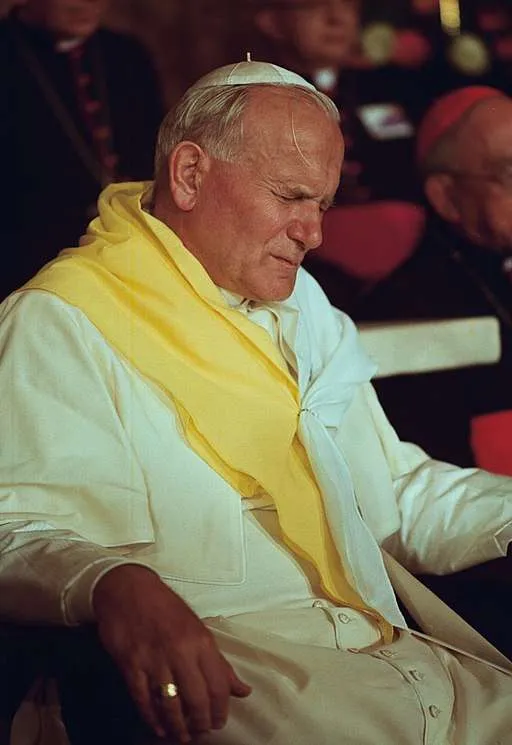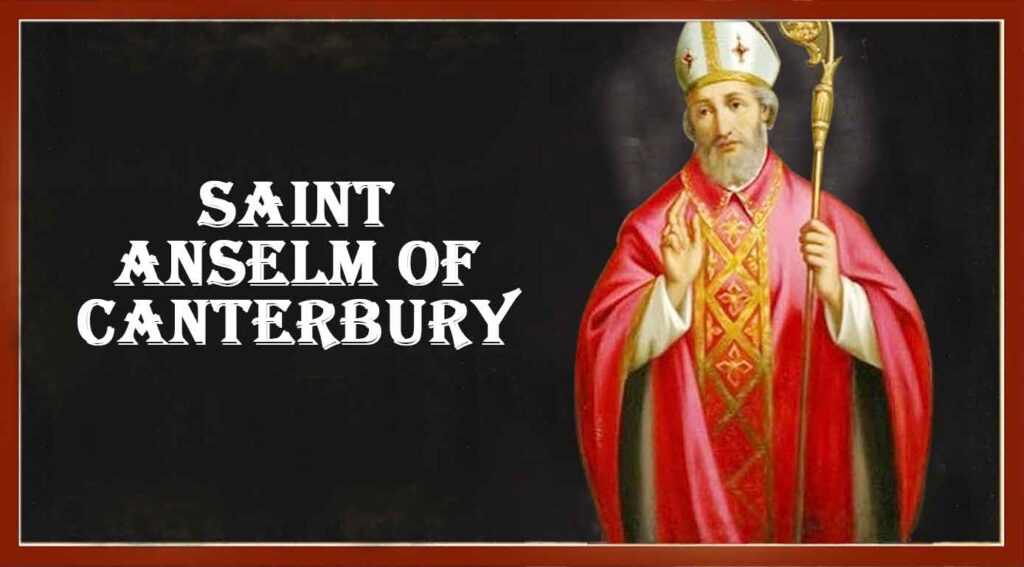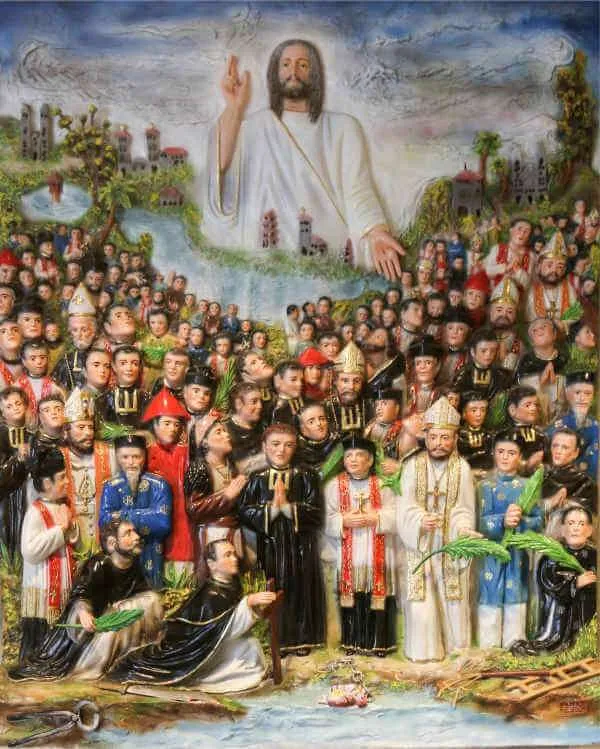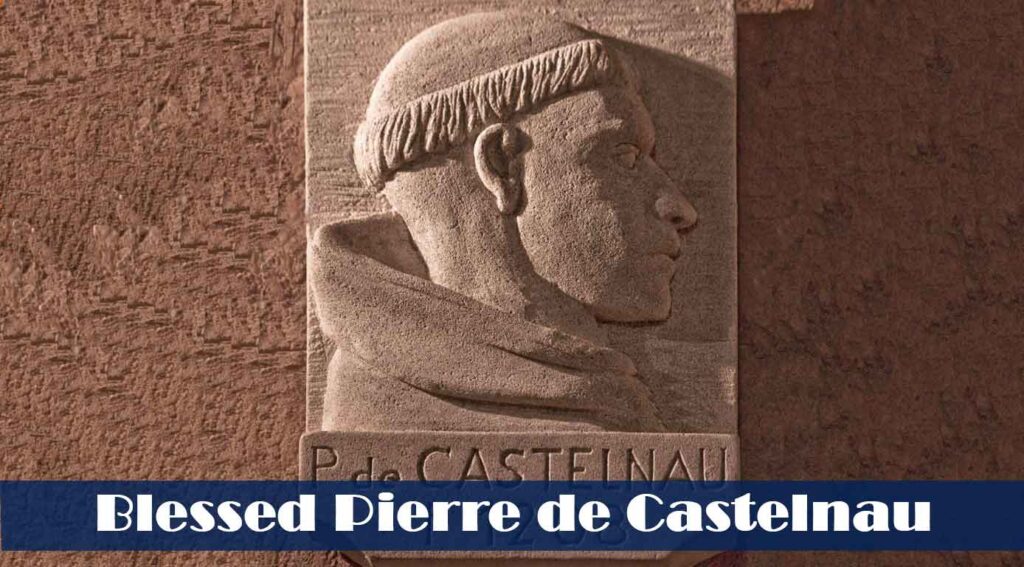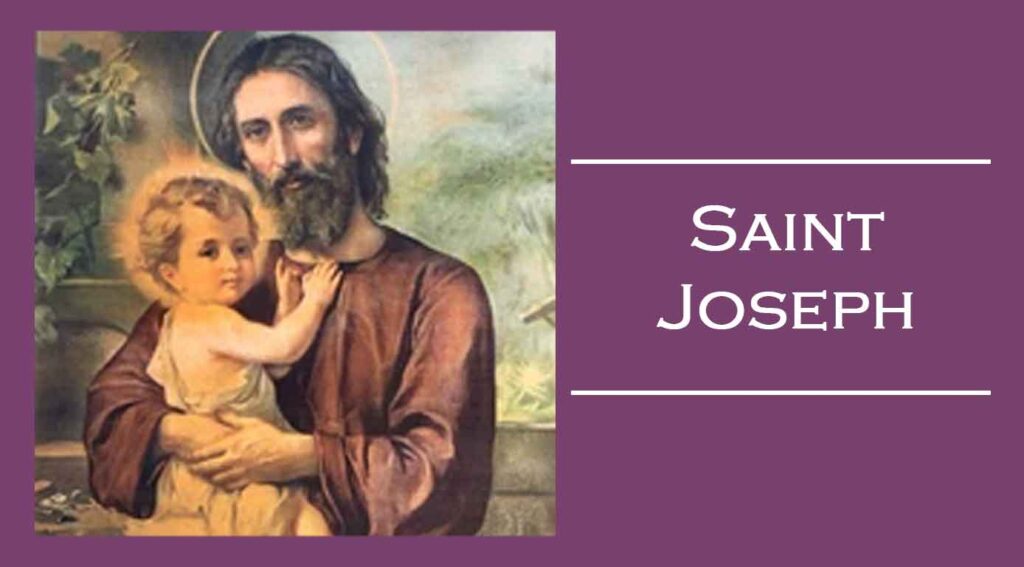1920–2005; Patron Saint of World Youth Days; Canonized by Pope Francis on April 27, 2014
Karol Józef Wojtyła, the future Saint John Paul II, was born in the Polish town of Wadowice, the youngest of three children, just two years after Poland regained its independence after 123 years of partitions and foreign rule by the Russian, Austrian, and Prussian empires. As a youth, he was known to his friends as Lolek, an affectionate form of his name Karol (Charles). Though Poland was free as he grew up, Karol suffered many hardships. He never knew his older sister who died just hours after she was born. When Karol was eight, his mother died, and when he was twelve, his older brother died, leaving only Karol and his father, Karol, Sr.. Despite these tragedies, Karol’s father had a profound impact upon his life. He would later say that “his example for me was in some way the first seminary, a sort of domestic seminary.” Karol Sr. taught his son to pray, trust in God, be devoted to the Blessed Virgin, and love his Polish culture. Karol Jr. often saw his father on his knees in their small home, praying his rosary.
Karol Jr. received his early education in his hometown and then attended the Marcin Wadowita High School, a state-run institution. He was active in extracurricular activities, such as drama, sports, and poetry. In 1938, Karol and his father moved to Kraków where he attended the Jagiellonian University, focusing his studies on philosophy and languages. He eventually became fluent in at least eight languages and had a competency in several others. Jagiellonian University was the oldest university in Poland, dating back to its founding in 1364 by King Casimir the Great. After Karol attended the university for a year, Nazi Germany invaded Poland on September 1, 1939, marking the beginning of World War II. On November 6, 1939, the Gestapo gathered 180 professors and staff of the university and arrested them, sending them to concentration camps in an attempt to suppress Polish culture and intellectual life. Jagiellonian University was closed, and all young men were required to work. In response, Karol Wojtyła, along with hundreds of other students, continued their education underground, risking their lives. In addition to his underground studies, Karol worked in a quarry and a chemical factory to avoid deportation by the Nazis.
In 1940, a friend introduced Karol to Carmelite spirituality, and his prayer life began to blossom. On February 18, 1941, Karol’s father died, leaving him without any immediate family members. Though devastated by the numerous hardships he had endured by the age of twenty-one, his prayer life continued to flourish, and he sensed a new calling to the priesthood. A year and a half later, Karol made up his mind, went to talk to Archbishop Adam Stefan Sapieha of Kraków, and was invited to begin studies in a clandestine underground seminary run by the archbishop. On August 6, 1944, an estimated 6,000 to 8,000 Poles, mostly young men of military age, were arrested, detained, and sent to Plaszow concentration camp in an attempt to stop a Polish uprising. Karol hid at his uncle’s house and narrowly escaped. After that, he moved into the archbishop’s residence and remained hidden there until Kraków was liberated by the Soviet Red Army on January 19, 1945, after which time the seminary was reopened.
On November 1, 1946, Karol was ordained a priest by the recently elevated Cardinal Sapieha. The cardinal then sent him to Rome where he received his doctorate in theology from the Angelicum. His thesis was titled, “The Doctrine of Faith in Saint John of the Cross.” During his time in Rome, Father Wojtyła traveled to the Capuchin monastery located in the city of San Giovanni Rotondo, where the famous mystic Padre Pio resided. A close friend of Father Wojtyła later related that during that visit, Father Wojtyła went to Padre Pio for confession, and Padre Pio informed Father Wojtyła that he would one day “ascend to the highest office in the Church.” In 2002, Padre Pio was canonized by none other than Pope John Paul II, his penitent from 1947.
After returning to Poland the following year, Father Wojtyła spent the next ten years engaging in pastoral ministry in parishes, taught ethics at the Jagiellonian University and Catholic University of Lublin, received a second doctorate in philosophy from the Jagiellonian University, and wrote poems, plays, and contemporary faith-based articles. During this period, Father Wojtyła also worked as a university chaplain. He soon began to gather groups of students together for prayer and discussions. His gatherings grew and soon they turned into kayaking and camping trips, called Środowisko. Since priests were not permitted to openly engage in such trips during the time of Communist control of Poland, Father Wojtyła had his friends call him Wujek, which meant “uncle.”
In 1958, while on a two-week camping trip with his friends, “Wujek” received a letter from the local post office summoning him immediately to the Primate, Cardinal Wyszynski, in Warsaw. After kayaking back, hitching a ride from a milk truck, and putting on his cassock, Father Wojtyła appeared before Cardinal Wyszynski who informed him that Pope Pius XII had named him an auxiliary bishop in Krakow. At the age of thirty-eight, he was to become the youngest bishop in the history of Poland. After spending hours in prayer at a nearby convent and a midnight train ride, Wujek made it back to his friends in time to offer Sunday Mass for them. When he informed them of the appointment, they were shocked and asked what they should now call him. He responded, “Don’t worry, Wujek will remain Wujek.” As a new bishop, Bishop Wojtyła continued to live simply, maintained his friendships, and lived out his ministry—just as he had for the previous ten years.
In 1962, Bishop Wojtyła became the temporary administrator of the Archdiocese of Kraków after the archbishop died. He also took part in the Second Vatican Council, making important contributions. In 1964, Pope Paul VI appointed him Archbishop of Kraków and made him a cardinal in 1967.
After Pope Paul VI died on August 6, 1978, Cardinal Wojtyła joined the other cardinals in electing John Paul I. However, the new pope only lived for thirty-three days. After the funeral and much disagreement in the next conclave over two Italian choices, the cardinals turned their eyes to a new choice, the fifty-eight-year-old cardinal of Kraków. He was elected on October 16, 1978, taking the name Pope John Paul II, the first non-Italian pope in 455 years. Padre Pio’s prophecy had come true.
When Pope John Paul II first appeared to the people gathered at Saint Peter’s Basilica, he said to the largely Italian crowd, “…the cardinals have called for a new bishop of Rome. They called him from a faraway land—far and yet always close because of our communion in faith and Christian traditions.” In his inaugural homily, Pope John Paul II spoke words that would echo throughout his papacy, “Do not be afraid. Open wide the doors for Christ. To His saving power, open the boundaries of States, economic and political systems, the vast fields of culture, civilization and development…” This young, energetic, prayerful, charismatic, and brilliant theologian, philosopher, linguist, pastor, and friend was about to make an indelible mark on the Church and world.
Pope John Paul II made trips to 129 countries during his pontificate, gathering some of the largest crowds in human history. He met with heads of state, held massive open-air Masses in stadiums, initiated World Youth Day celebrations, met with religious leaders of other faiths, survived an assassination attempt, and commanded a powerful and endearing presence everywhere he went, almost always speaking in the native language.
In 1979, Pope John Paul II made a historic visit to his homeland. When he arrived, a movement was sparked that could not be stopped and led to the downfall of communism in Poland and across Europe within a decade. When he arrived, he kissed the ground and spoke directly to his people. He was a Pole, and they were Poles, and he encouraged them to never forget that. He spoke of solidarity with one another, and what came to be known as the Solidarity Movement began. Over the next year, an underground workers’ union called “Solidarity” formed and grew rapidly. By September 1981, about one-third of Poland’s working-class population were members. In 1983, Lech Wałęsa, the president of the Solidarity movement was awarded the Nobel Peace Prize, and in 1990, Wałęsa became the first President of Poland to be elected by popular vote, leading to an end of the Soviet Union and opening the door for the expansion of democracies across Eastern Europe.
Pope John Paul II was the most prolific writer in the history of the papacy. The Church was still trying to find its way after Vatican II, and Pope John Paul II guided it at every turn. He wrote on morality, dogma, spirituality, mariology, sexuality, family life, marriage, the dignity of the person, the economy, society as a whole, and much more. He wrote fourteen encyclicals, fourteen apostolic exhortations, forty-five apostolic letters, eleven apostolic constitutions, thirty motu proprio, many catecheses, homilies, plays, and books. He reformed the Church’s Code of Canon Law and promulgated the Catechism of the Catholic Church.
Pope John Paul II was also prolific in his canonizations, canonizing more saints than all of predecessors combined. He canonized 482 and beatified 1,338. His canonizations were also new in that they sought to honor people of every walk of life. One of his most significant canonizations was that of Saint Faustina Kowolska, a Polish nun entrusted with the message of Divine Mercy. During her canonization in the year 2,000, the pope instituted the Solemnity of Divine Mercy Sunday on the second Sunday of the octave of Easter, in accord with the private revelations that Jesus gave to Saint Faustina.
Pope John Paul II not only lived well, he also died well. After suffering with Parkinson’s disease in public view for years, unable to walk and barely able to talk, he died on April 2, 2005, on the eve of Divine Mercy Sunday.
Saint John Paul II was one of the most visible figures in the history of the world. He navigated the Church through a tumultuous period, becoming the third longest-reigning pope in history. As we honor him today, ponder the effect that this saint had upon your own life. There is no doubt that Saint John Paul II has affected you in ways that you will only comprehend in Heaven. Give thanks to God for the gift of his life, and seek his prayers this day.
Source: https://mycatholic.life/saints/saints-of-the-liturgical-year/october-22—st-john-paul-ii-pope/


